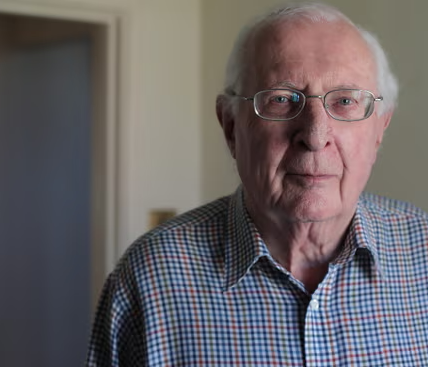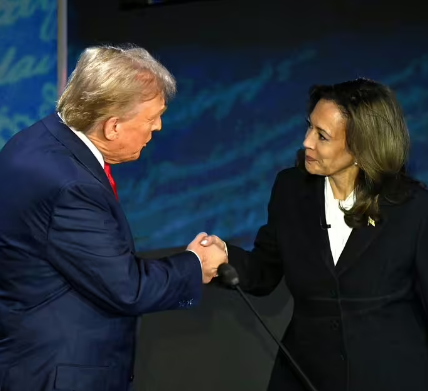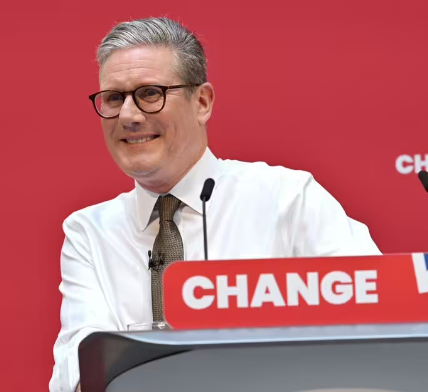The candidates say they have cross-party support, despite being seen as part of the same populist right wing

Kemi Badenoch and Robert Jenrick will go head-to-head in the final heat of the Conservative party leadership contest, after James Cleverly was knocked out in the previous round of voting. Photograph: UK Parliament/PA
As the race for the Conservative leadership enters it final stage, Kemi Badenoch and Robert Jenrick are pushing back against the idea that the party faces a limited choice between two candidates from the same populist right wing.
While each won the support of only about a third of the Conservatives’ 121 MPs as they reached the final vote among party members, they and their allies have repeatedly talked up their cross-party support, and the breadth of their policy focus.
So are Badenoch and Jenrick really representative of the broader Tory party – let alone the country as a whole? One way to gauge this is to examine the candidates’ main inspirations, parliamentary supporters and other backers.
Team Badenoch
The ideological inspirations: It is rare for a powerful woman to emerge in politics without rumours about a supposed male svengali in the background, and with Badenoch this role is filled by Michael Gove. The pair certainly are – or were, depending who you speak to – close, and she shares a good part of Gove’s move-fast-and-break-things approach to government.
Gove, now liberated from his role as an MP and editing the Spectator, did this week warn that Jenrick risks appearing like the latest in a sequence of identikit “Tory boys”, while praising Badenoch’s “courage”.
However, Badenoch’s allies dispute his influence, saying they have not spoken at all during the campaign. They are even more scornful about the Nadine Dorries-propagated idea of Gove and former No 10 fixer Dougie Smith, who looms large in Dorries’ personal mythology of the Tory party, as being effective puppet masters who are using Badenoch as a proxy.
What is more certain is Badenoch’s closeness to other members of the “Evil Plotters”, the self-mocking WhatsApp group from the Rishi Sunak period, including Julia Lopez, the shadow culture secretary.
This group also includes Lee Rowley, no longer an MP but still working with Badenoch. Such is their rapport that when Badenoch held an online rally on Wednesday, Rowley introduced Badenoch at length – until she jokingly told him to shut up and let her speak.
The key MP backers: While Badenoch has the support of a series of rightwingers, her team are keen to emphasise what they call the breadth of her parliamentary backing, taking in more one nation-minded or Sunak-ite Tories such as Claire Coutinho, who also introduced her at the online rally, Helen Whately and Jesse Norman.
While the centrist Tory Reform Group has declined to endorse either candidate, one of its key MPs, Nigel Huddlestone, was sent out to spin for Badenoch when she made it through the penultimate round of MP voting.
With Badenoch largely steering clear of specific policy pledges, unlike Jenrick, she has arguably attracted a broader range of backers than her leadership rival.
The donors: The bulk of the £350,000-plus that Badenoch has received in declared donations during the campaign has been from the usual mass of rich and generally Tory-minded businesspeople. The name that stands out the most is Neil Record, who gave her £10,000 and, reports say, lent her the use of a house for the campaign.
Record is notable as he is the chair of Net Zero Watch, the climate action-sceptical group which takes a view on net zero targets – that they are badly thought out and risk harming prosperity – that ties in with Badenoch’s own.
The mystery factor: One of the curiosities of Badenoch’s campaign so far is the 40-page pamphlet released during the Conservative conference, titled Conservatism in Crisis: Rise of the Bureaucratic Class. While this had a foreword from Badenoch herself, the document does not list any authors – and her aides have refused to say who did write it.
It was nonetheless a striking document, citing among other sources the vehemently anti-regulation US lobby group the Committee to Unleash Prosperity, and arguing that autistic people receive “better treatment” and “economic privileges and protections”, the latter of which prompted significant criticism.
Team Jenrick
The ideological inspirations: In his own way, Jenrick has faced as many whispers as Badenoch about supposedly being the frontman for an ideological coterie who have captured him – or in this case, have turned him from the Cameroonian centrist once known as Robert Generic into the current anti-migration firebrand.
Some of the regular faces at Jenrick’s events certainly come from the more Reform UK-facing end of the Tory party, such as MPs Danny Kruger, John Hayes and Mark Francois. One anti-Jenrick MP even accused them of effectively “radicalising” the candidate.
Insiders in Jenrick’s team dismiss this idea with a laugh, saying his intellectual journey from the centre was self-guided, and based entirely on his experiences in government, notably as immigration minister. Some supporters say they were also drawn to him less by ideology than his capacity for hard and unfussy work.
They insist that of equal influence are more ideologically omnivorous MPs on the team, such as Neil O’Brien, one of the main voices behind the idea of levelling up, and John Lamont, who resigned from Boris Johnson’s government in protest at lockdown-breaking parties.
The key MP backers: Much like Badenoch, there is an onus on Jenrick’s campaign to point towards more centrist backers as a way to alleviate concerns that his insistence on a shadow cabinet fully signed up to immediate withdrawal from the European convention on human rights could split the party.
Key among these is Victoria Atkins, formerly Sunak’s health secretary, who now shadows the role. Jenrick has also won the support of Nick Timothy, initially a backer of Tom Tugendhat.
Despite the presence of other Tory centrists on his list of backers, for example the shadow justice secretary, Edward Argar, Jenrick is arguably shorter on these than Badenoch.
The donors: Jenrick has also raised over £350,000, and again the bulk has come from established companies or wealthy individuals. The one curiosity for him is the fact that nearly a third of this has come from a company with no employees, which has never made a profit.
He has received four donations of £25,000 from The Spott Fitness, a company initially shrouded in mystery. Phillip Ullmann, an entrepreneur, later said it was one of his companies, although the name does not appear on the list of people with significant control at Companies House.
It also emerged that The Spott Fitness registered a loan from Centrovalli, a company registered in the British Virgin Islands, earlier this year.
The mystery factor: Almost as big a political cliche as the male svengali is the idea of a spouse who pulls the ideological strings. And much as there is no real evidence that Gove exerts significant influence on Badenoch, the idea of Michal Berkner being the force behind Jenrick seems largely a product of her being a confident and successful corporate lawyer.
Berkner, who met Jenrick when he worked as a solicitor, was born in Israel and educated in the US. After a stint working with Russian oligarchs, among other clients, she now mainly works in the life sciences sector.
A regular presence with Jenrick at this month’s Conservative conference, she is described in the media as highly ambitious on her husband’s behalf, which could equally be shorthand for being a supportive spouse.




